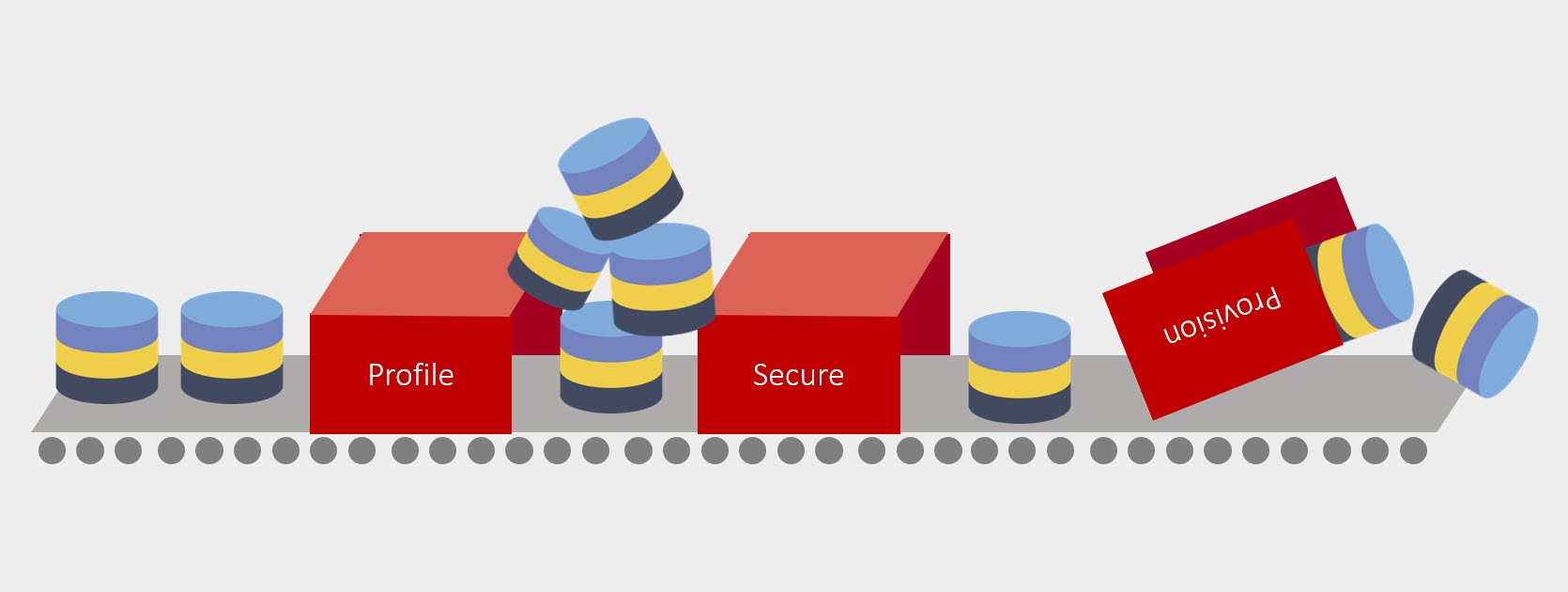The world is full of Patterns (good behaviors) and Anti-Patterns (bad behaviors).
Below we list a number of the “bad ones” that your organization should not be promoting.
-
- Anti-Pattern: Excluding data from the current DevOps (or CI/CD) methods. Meaning data is done in a bespoke/manual fashion that is inconsistent, untraceable, error-prone and slow.
- Anti-Pattern: Provisioning of non “production-like” data. Fabricated (synthetic) data is good, and an excellent supplement for one’s data needs, particularly during early test phases like unit and system testing. However, trying to exercise systems thoroughly without “realistic” data or shape (relationships) is a sure way to restrict testing and miss important bugs.
- Anti-Pattern: Migrating Data without encrypting (or masking). Resulting in data being vulnerable during transit and at the other end (at rest).
- Anti-Pattern: Allowing Data to become stale. Old/dirty data will prevent your data scientists seeing the signals, prevent “AI learning” and restrict your projects ability to test effectively.
- Anti-Pattern: Relying on information security to only be done at the production permitter. Invariably meaning data across your non-production environments, which often contains production copies, is left unprotected and vulnerable to theft.
* Remember 95% of an IT Projects Time and Staff is inside the Non-Production space. Leaving the data unprotected is a sure way of having Customer PII (Personally Identifiable Information) getting into the wrong hands.
References:
- DZone DataOps Anti-Patterns Article.


